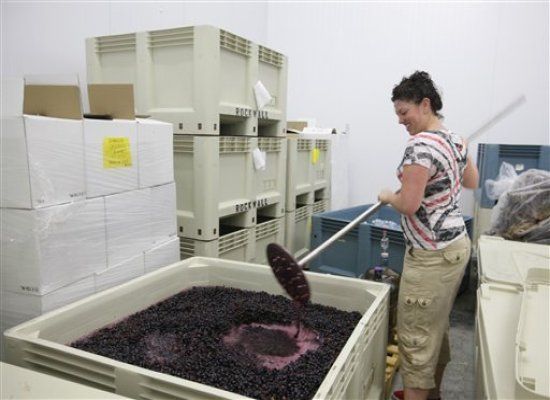At the dawn of the Cold War in 1947, noted diplomat George Kennan proposed in a famous Foreign Affairs magazine article that the U.S. adopt a policy of "containment" to thwart Soviet expansion. "Containment" became a new buzzword in the diplomacy lexicon, the goal being to thwart the ability of a country to act against another.
When the UN Security Council imposed its fourth round of sanctions against Iran's illegal nuclear program last week the punitive economic measures were intended to "contain" Iran's illicit nuclear weapons program.
Dismissing the latest round of international punishment, Iran's mercurial president declared the sanctions to be nothing more than "...used tissues which should be thrown into the trash." Hyper bravado or trash-talk?
Despite the denials multilateral sanctions are certainly more than a mere nuisance to Iran's leadership. The latest round of sanctions impose on Iran an arms embargo, blacklist Iran's international shipping companies, authorize inspections of cargo ships bound for Iran, prohibit foreign investment in Iran's bonds, and blacklist companies and persons connected to Iran's Revolutionary Guards. Add other sanctions about to be imposed by the U.S. and its allies, and the noose should be tightening against Iran... or so sanctions proponents would have us believe.
Well then, why not chalk this up as an unprecedented diplomatic achievement for the good guys given the fact that Iran's two most important allies on the Security Council -- China and Russia -- abandoned the mullahs? Surely, as sanctions are increasingly fine tuned Iran will be more "contained" and find it far more economically painful to continue thumbing its nose at the world. So it would seem.
But Iran has been feverishly constructing its own containment policy to neutralize sanctions and straightjacket any military designs against its nuclear facilities.
As the clock ticks toward a showdown with Iran will it succeed -- or miscalculate -- that it can thwart an attack by Israel or the U.S. against its nuclear enrichment facilities?
First, in a global cat and mouse game, Iran has demonstrated uncanny resourcefulness and ingenuity to evade the worst of the sanctions against it. It has constructed a house of mirrors to hide its ownership of funds financing its imports and the companies breaking the sanctions.
Iran has been relatively successful maintaining its vital export markets with the very countries we need to turn the sanctions tourniquet tighter. By any measure, American-led efforts to economically isolate Iran have achieved important victories, but on balance, insufficient ones. In fact, Iran continues to export its goods relatively unhindered particularly to the very nations the U.S. is counting on to support sanctions; namely Japan, the EU and India. Moreover, the Sunni Arab states most concerned about Shiite Iran's nuclear and regional ambitions, namely Kuwait, Oman and the UAE, have not done nearly enough to end Iran's access to their exports. A few weeks ago, while in Oman I personally witnessed a flotilla of zodiac boats overflowing with camouflaged goods zipping across the Arabian Gulf to Iran from the port of Khosab.
Second, Iran has formed a new "northern alliance" which now includes, Syria, Hezbollah and Turkey. Turkey, once a strong NATO ally, is now firmly allied with Iran against the U.S. Turkey, which supported Iran in the UN, would certainly oppose military action against Iran and prevent its NATO air bases from
Second, Iran has formed a new "northern alliance" which now includes, Syria, Hezbollah and Turkey. Turkey, once a strong NATO ally, is now firmly allied with Iran against the U.S. Turkey, which supported Iran in the UN, would certainly oppose military action against Iran and prevent its NATO air bases from




























